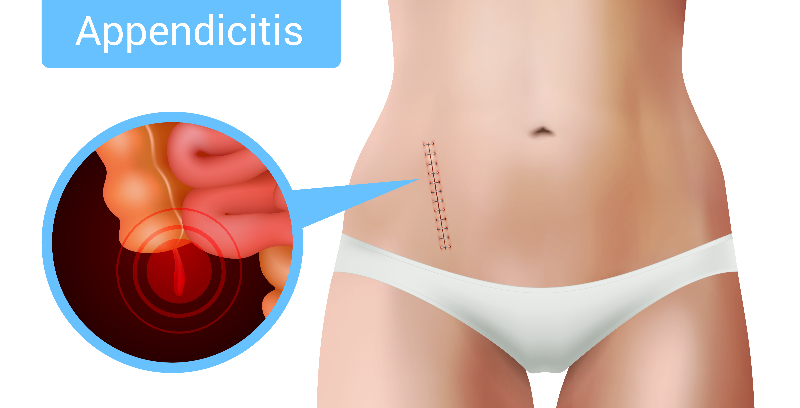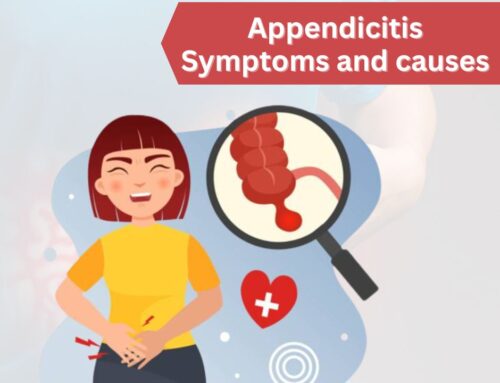
Appendicitis is a serious condition that can cause long-term problems if not taken care of, so early detection and treatments are essential. If you aren’t sure what appendicitis is, or if you think appendicitis will have similar symptoms to other conditions, this article is for you.
Here are some of the most common signs and symptoms of appendicitis:
-
Upper abdominal pain
It is a common symptom of appendicitis. But at first, it might feel like a dull ache or cramps in your upper abdomen or lower chest. It may last for several hours before settling in your lower right abdomen. If the pain continues to get worse and moves toward your right side, that could be a sign that your appendix is about to burst.
-
Pneumonia-like cough
If you have a cough that worsens at night or after eating or drinking, it could be a sign of appendicitis. The same thing happens when you have pneumonia or other respiratory infections because mucus from the lungs can drip down into the appendix and cause inflammation.
-
Painful urination
Pain during urination is common when you have a bladder infection. Still, it could also be a symptom of appendicitis, especially if it’s accompanied by pain in the lower-right side of your abdomen. Painful urination is a common symptom among children and women with appendicitis.
-
Loss of Appetite
This is typically one of the first signs of appendicitis. You may also experience nausea or vomiting soon after this symptom appears. Unfortunately, this sign can also be attributed to many other conditions that aren’t nearly as serious as appendicitis, so it’s not something to panic over right away.
-
Diarrhea or Constipation
Diarrhea or constipation may also occur with appendicitis. Some individuals may have both diarrhoea and constipation. It can result from the body’s attempt to move the stool along faster through the digestive tract due to inflammation in the abdomen from appendicitis.
-
Pain above the Belly Button
The appendix is located toward the lower right of your abdomen. Still, its muscles are connected to those further up your stomach, which means that a swelling appendix can also trigger pain higher up. If you experience sharp pains above your belly button without other symptoms like diarrhoea or vomiting, appending may be blamed.
Conclusion
Appendicitis is a painful and difficult illness to suffer through. Luckily, by understanding the symptoms that occur, you can take action to prolong the vast majority of your life. Contact Dr. Abhijit Gotkhinde at Ultra Care Clinic, Pune, for more information.




